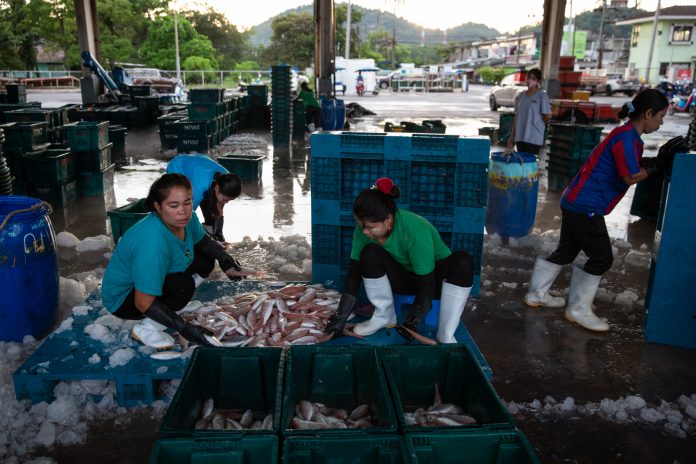Originally published on HaRDstories
In a ruling that underscores the challenges faced by foreign labour, Thailand’s highest court has upheld the exclusion of migrant workers from the landmark Social Security board election.
BANGKOK – Thailand’s Supreme Court has rejected an appeal by migrant workers to participate in the election for the Social Security board, stating that the appeal was filed too late and does not serve the public interest.
The decision on 28 March reaffirmed the Minister of Labour’s administration of the election, as challenged by migrant worker rights advocates.
The fund, focused on labour issues, covers approximately 1.2 million foreign workers, constituting about 5.2 percent of the 23 million workers nationwide under the Social Security scheme. The 21 board members are responsible for overseeing the welfare and allocation of a 2.4 billion baht (around $68 million) budget.
The election, held for the first time on 24 December 2023, marked the first time in three decades that workers were allowed to directly elect their representatives. Previously, board members representing employers and employees were appointed by the military regime led by General Prayut Chan-ocha, who staged a coup d’état almost a decade ago.
Supreme Court confirms previous decision
The lawsuit was filed in May 2023 by six plaintiffs, including four Thai labour rights activists and two migrant workers from Cambodia and Myanmar. They demanded the revocation of the election regulations and called for an inclusive election.
A few weeks later, the Administrative Court of First Instance dismissed the lawsuit, stating that the case, being labour-related, fell outside its jurisdiction. The Supreme Court then affirmed this decision, noting that the migrant worker plaintiffs filed the lawsuit more than 90 days after becoming aware of the election criteria.
According to administrative regulations, any grievances regarding mistreatment by civil staff or complaints must be filed within 90 days of becoming aware of the issue. In this instance, the regulation in question pertained to the Social Security board election, announced on 8 July 2021 by the Ministry of Labour. Specifically, Section 16 mandates that voters and board candidates possess Thai nationality.
“I’m sad to hear the result. Migrant workers contribute to the Social Security fund every month, but we cannot participate in the election,” said Nan Thandar Htun, a female worker from Myanmar who attended the hearing. “We were not even aware that there would be an election because the regulations were all written in Thai.”
The court also ruled that the case did not qualify for the delay submission exception, which applies to cases that ‘benefit the general public.’
Debate over foreign workers’ rights
Beyond the judicial realm, efforts to enhance migrant workers’ rights within Thailand’s social security system have gained traction.
In November 2022, the National Human Rights Commissioner examined the case and determined that the guideline was discriminatory and violated migrant workers’ rights, and was in conflict with the Social Security law’s aim of promoting full participation from both employers and employees.
In the Social Security board election, progressive labour rights activists won all the seats representing employees. Among them is Siwawong Sooktawee, a seasoned advocate for migrant worker rights, who has pledged to address the concerns of non-Thai workers in the management of the Social Security funds and tailor solutions to their needs.
Thailand hosts over 3 million migrant workers, constituting approximately 8.4 percent of the total workforce. But this figure is likely an underestimate, as it does not account for undocumented workers.
A recent study by the Myanmar Response Network indicates that around 1,000 individuals from conflict-stricken Myanmar cross into Thailand daily, seeking safety and better job opportunities. This trend has escalated following the Myanmar military’s announcement of a conscription law, set to take effect after the traditional New Year celebrations in mid-April.



